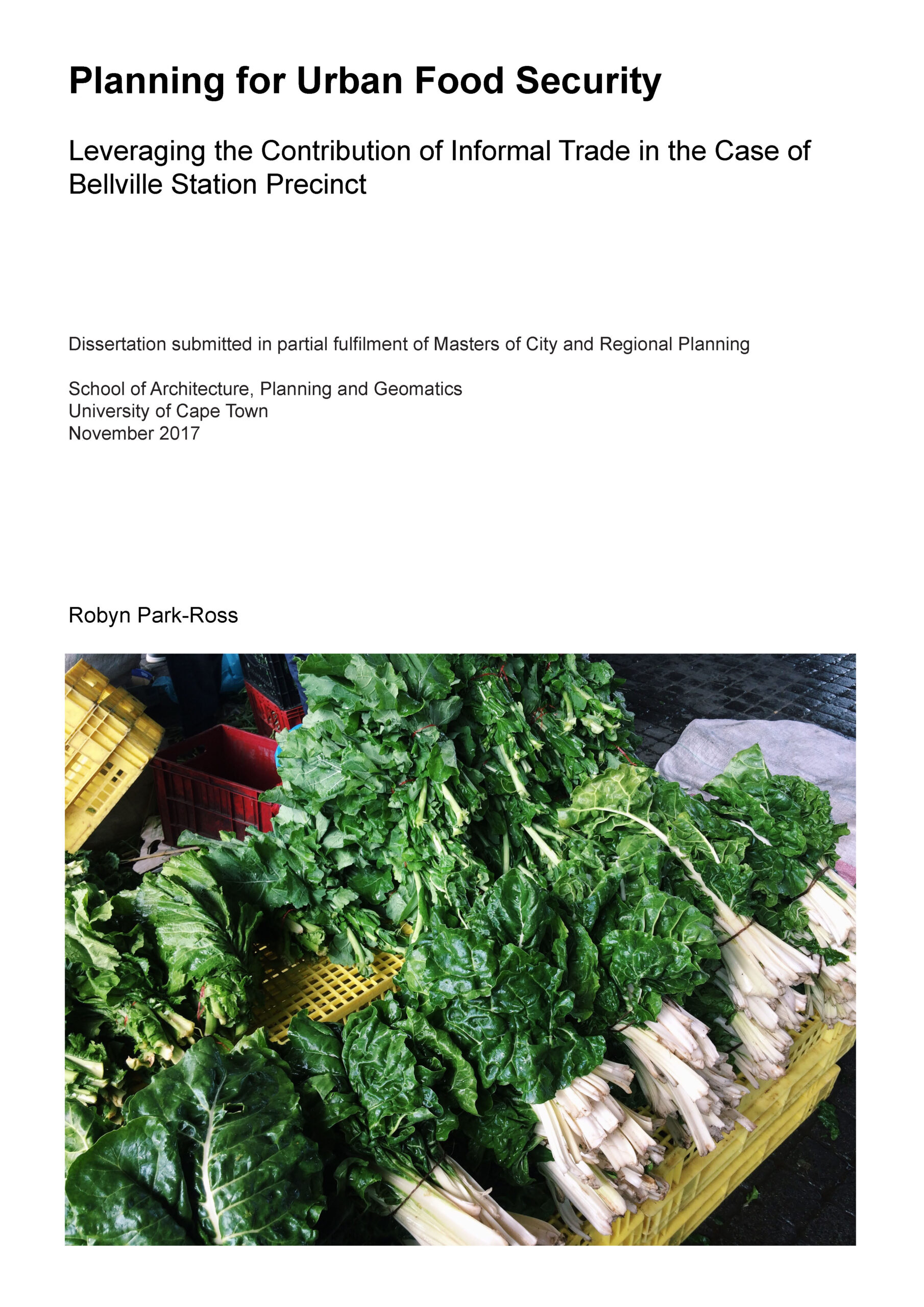– Master Thesis –
South African cities, similarly to other cities across the Global South, experience high levels of food insecurity. Urban food insecurity is particularly prevalent in low income households, with 72% of households in low-income urban areas in Cape Town identified as food insecure in a 2013 African Food Security Network survey. In the context of rising urbanisation, poverty, and unemployment levels this issue is expected to increase into the future in the absence of proactive intervention. Despite the severity of the issue, urban food insecurity continues to be largely neglected by planners and policymakers. This invisibility can be attributed mainly to the persistence of the popular conceptualisation of food insecurity as an issue of production, resulting in a focus on increased rural food production and urban agriculture as the panacea for food insecurity. This limited rural and productionist framing has resulted in a persistent neglect of the dimensions of access in food security, specifically in urban settings. This neglect has included the invisibility of the contribution that informal trade makes to urban food security through supporting access to food.
Through the case study of the Bellville Station Precinct in Cape Town, I argue that informal food traders are playing a crucial role in supporting urban food security through enabling greater access to food for economically stressed urban residents. This argument is made through the exploration of the extent that these traders are using various entitlement enhancing strategies that support physical and economic access as well as access to viable food options that cater to food preferences. Based on the understanding and acknowledgement that informal food traders, in this case, are supporting access to food for economically stressed users of the space, I then explore the role that spatial planning should play in leveraging this contribution. This is done through exploring the myriad of challenges faced by the traders currently in making this important contribution, and specifically through highlighting how this role has been undermined by the way the City has interacted with, intervened in and managed the space.
While the research reveals a reality where traders currently face a myriad of compounding and growing challenges, I argue that a different path is possible. This path necessitates spatial planners acknowledging and valuing the contribution of informal trade to urban food access as the basis for taking responsibility for protecting, supporting and maximising it. This is explored through a three-pronged supportive planning proposal for the precinct. Firstly, this proposal includes necessary legislative and institutional changes. Secondly, it provides a spatial design concept for how food trade could be spatially priorotised as the precinct develops through the provision of a system of supportive infrastructure. Lastly, the proposal outlines a transition to a form of management that is grounded in collaboration and facilitation through the gradual rebuilding of trust between stakeholders. In this way, this dissertation provides an indication of the form that context-specific food sensitive panning could take in the case of the Bellville Station Precinct.

